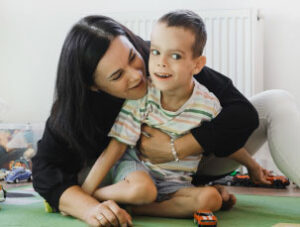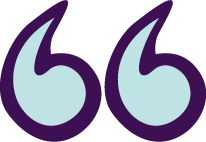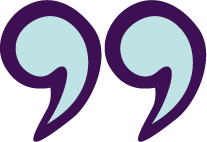Dealing with mental health issues and disability can be challenging for both you and your child. Sometimes, symptoms of anxiety and depression are overlooked in children with disability. It’s important to trust your instincts and seek assistance if your child experiences unexplained mood or behavioural changes.
There are a variety of services to help improve your child’s mental health.
General Practitioner (GP)
Your child’s GP is the best place to start. They can check if there is something physical affecting your child. Pain or illness can cause behaviour changes. The GP can monitor their condition and prescribe appropriate medication. They can also write a mental health care plan which helps cover the cost of a counsellor or psychologist. If necessary, your GP can refer your child to a psychiatrist.
Community health and wellbeing centres
Community health services across Victoria offer mental health support, including counselling and psychology. These are usually free or at a reduced cost.
Find out what community health services are offered near you.
There are new Mental Health and Wellbeing Connect centres that are open across Victoria. It is a free service. They help connect families with support.
Mental Health and Wellbeing Connect – Better Health Channel
School mental health practitioners
Mental health practitioners are in every secondary and specialist school. They might be a psychologist, mental health nurse, social worker, or occupational therapist. They can talk to you or your child about what support is available locally.
headspace
headspace is for young people aged between 12 and 25. Their centres have doctors, health workers and mental health professionals. They can help with different issues including anxiety, stress, bullying, depression, or problems with family and friends.
There are centres across regional Victoria and metropolitan Melbourne.
You can chat online with a qualified professional, visit a centre, or just read their information on mental health topics. Go to headspace National Youth Mental Health Foundation
Seeing a psychologist or counsellor
If you or your child qualifies for a mental health care plan, you will be entitled to Medicare rebates for up to 10 individual psychological appointments and up to 10 group allied mental health services each year. A rebate means that there is some cost covered by Medicare and some cost you will need to pay.
You can’t get Medicare rebates for all the sessions at once. After your first six appointments, you must see your doctor again for a mental health plan review. They can then consider whether you need a referral for further sessions.
If you have private health insurance, you may be able to access some mental health services through your insurer. However, it is important to remember that not all mental health services are covered by private health insurance.
Finding support that suits the needs of you and your family may take time and there may be waiting lists.
It’s important to make sure the counsellor or psychologist can support the communication needs of your child with autism, intellectual disability, or communication disorder. Check that the professional your child will be seeing has experience and knowledge of your child’s disability. Seek referrals from friends, colleagues, doctors, teachers, or your paediatrician, and ask why they are recommended.
You can search for psychologists in your area on websites such as Australian Psychological Society.
Counsellors should have professional registration. You can check or search for counsellors via ARCAP Register | Australian Register of Counsellors.
Like other therapies, counselling or psychology can’t work in isolation. Families should be actively involved in supporting strategies or plans at home and making sure that other important people in your child’s life are involved.
What does mental health support look like?
Talking therapy
Talking therapy or counselling is where your child can talk about their situation with a trained counsellor (usually one-to-one.) Counsellors don’t often give advice; they support the child to talk through the situation and come up with their own solutions.
Mental health therapies for pre-teens and teens.
Medication
In some cases, your child’s GP or psychiatrist may suggest medication to assist with conditions like anxiety or depression (psychologists cannot prescribe medication). Medication can help relieve symptoms, but it’s important to be aware of possible side effects. Have a discussion with your child’s doctor or psychiatrist about any concerns or queries you may have regarding the medication.
Managing mental health medications
Safety plan
For some young people, it will be important to set up a safety plan. This plan should be created with input from your child. It’s there to help your child when they are in crisis and perhaps at risk of suicidal behaviour. It can include a written list of coping strategies, resources, and emergency contact numbers.
Find out about the BeyondNow suicide safety plan.
Serious mental health issues
Child and Youth Mental Health Services (CYMHS) supports children and young people with serious mental health issues:
Inner South Melbourne
Alfred Health: Child and Youth Mental Health Service
Northeast Melbourne
Austin Health: Child & youth mental health
Northwest Melbourne
The Royal Children’s Hospital Melbourne: Mental Health (0 to 18 years)
Orygen Youth Health (15 to 25 years)
Southeast Melbourne
Monash Children’s Hospital: Early in Life Mental Health Service
Monash Health: Child and adolescent services
Eastern Melbourne
Eastern Health: Infant, Child, Youth Mental Health and Wellbeing Service
Goulburn Valley
GV Health: Child and Adolescent Mental Health Service
Gippsland
LRH: Infants, children & young people (0 to 25 years)
Barwon
Barwon Health: Child and Adolescent Mental Health Service (CAMHS) (0 to 15 years)
Glenelg
SouthWest Healthcare: Child and Adolescent Mental Health and Wellbeing
Grampians
Grampians Health Ballarat: Infant Child Mental Health Services (0 to 14 years)
Ballarat Health Service: Ballarat Youth Mental Health Service (15 to 24 years)
Loddon Campaspe / Southern Mallee
Bendigo Health: Child and Adolescent Mental Health Service (CAMHS)
North Mallee
Mildura Base Public Hospital: Mental Health
North Eastern Hume
Albury Wodonga Health: Mental Health
If you are worried your child is suicidal
Caring for someone at risk of suicide is a traumatic experience for everyone, but you are not alone so please seek support.
If you are concerned your child is in immediate danger of suicide, take them to hospital or call 000.
Online or telephone support
Kids Helpline
Free confidential 24-hour telephone and online counselling for young people aged between 5 and 18.
Call 1800 55 1800
Beyondblue
24-hour telephone support and links to local services.
Call 1300 22 4636
Lifeline
24-hour national telephone crisis counselling service and online counselling.
Call 13 11 14
Healthy Mind
An online Easy Read tool designed to help people with intellectual disability (ID) to recognise and regulate their thoughts and feelings.
The Suicide Response Project – Autism
A resource for autistic people and their families about suicide and how to help. It highlights the risk factors and includes information about what to say and do if you feel your child is at risk of suicide.
Read more about The Suicide Response Project.
Useful links
Depression and low mood: autistic teenagers
Children with disability: mental health & physical health
Mental health treatment plans
Mental health care and Medicare
How much does seeing a psychologist cost?
CID Easy English mental health resources
Yellow Ladybugs mental health resource
Emerging Minds disability resources






